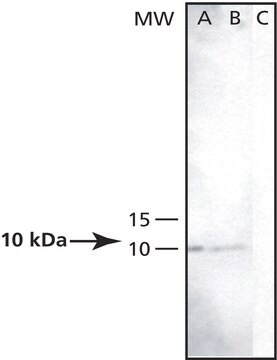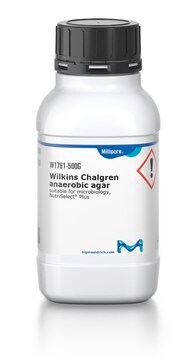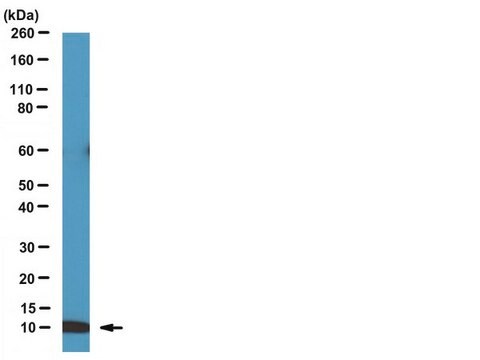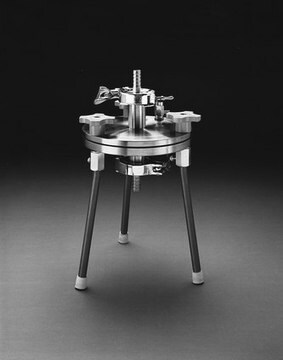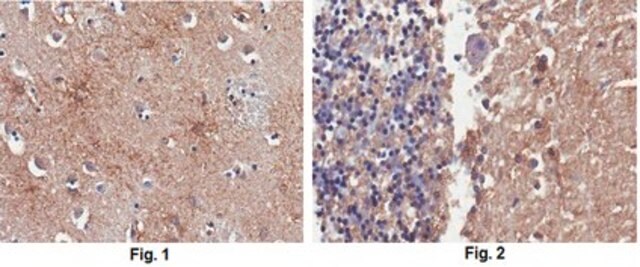07-1386
Anti-Connective Tissue Growth Factor Antibody
from goat
Sinónimos:
Hypertrophic chondrocyte-specific protein 24, connective tissue growth factor, insulin-like growth factor-binding protein 8
About This Item
Productos recomendados
origen biológico
goat
Nivel de calidad
forma del anticuerpo
purified antibody
tipo de anticuerpo
primary antibodies
clon
polyclonal
reactividad de especies
human
técnicas
western blot: suitable
Nº de acceso NCBI
Nº de acceso UniProt
Condiciones de envío
wet ice
modificación del objetivo postraduccional
unmodified
Información sobre el gen
human ... CTGF(1490)
Descripción general
Especificidad
Inmunógeno
Aplicación
Signaling
Growth Factors & Receptors
Calidad
Western Blot Analysis: 5 µg/mL of this antibody detected Connective tissue growth factor on 10 µg of untreated and TGFb1 treated NRK cell lysates.
Descripción de destino
Forma física
Almacenamiento y estabilidad
Nota de análisis
Untreated and TGFb1 treated NRK cell lysates
Otras notas
Cláusula de descargo de responsabilidad
¿No encuentra el producto adecuado?
Pruebe nuestro Herramienta de selección de productos.
Opcional
Código de clase de almacenamiento
12 - Non Combustible Liquids
Clase de riesgo para el agua (WGK)
nwg
Punto de inflamabilidad (°F)
Not applicable
Punto de inflamabilidad (°C)
Not applicable
Certificados de análisis (COA)
Busque Certificados de análisis (COA) introduciendo el número de lote del producto. Los números de lote se encuentran en la etiqueta del producto después de las palabras «Lot» o «Batch»
¿Ya tiene este producto?
Encuentre la documentación para los productos que ha comprado recientemente en la Biblioteca de documentos.
Nuestro equipo de científicos tiene experiencia en todas las áreas de investigación: Ciencias de la vida, Ciencia de los materiales, Síntesis química, Cromatografía, Analítica y muchas otras.
Póngase en contacto con el Servicio técnico